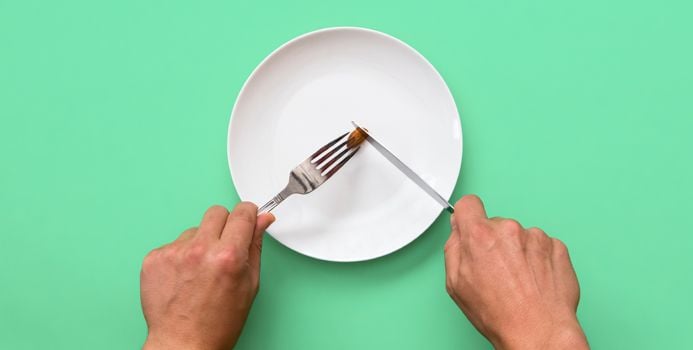Disordered eating covers a broad spectrum of conditions, and many of us have heard of the more common types like anorexia nervosa, bulimia nervosa, and binge-eating disorder. Orthorexia, while not yet an official diagnosis, is on the rise despite being relatively unknown amongst the public. Coined by Dr. Steven Bratman in 1997, orthorexia is a term that means “fixation on righteous eating.” While those with anorexia or bulimia are concerned with calorie consumption and weight, orthorexics obsess about eating healthy -- not necessarily coupled with weight loss.
Orthorexia can begin as a simple attempt to change eating habits and become healthier, but the person becomes fixated on eating only foods of the highest quality or purity. Eating habits become very rigid, and nutrition becomes an obsession. They become consumed with what and how much to eat. Deviations from their strict eating plan may trigger self-punishment through fasting or over-exercising. Self-esteem becomes wrapped up in the conceived purity of their diet, and sufferers may even look down on others who they feel don’t eat as well.
Initially, it sounds counter-intuitive that healthy eating would be considered a disorder. But this disorder is highly restrictive, often in calories as well as the variety of food eaten, so that it becomes detrimental to one’s health. Orthorexia can result in nutritional deficits due to self-imposed dietary restrictions. Vitamin or mineral deficiencies may not appear initially, but can have long-term consequences. Further, one could lose the ability to eat intuitively; that is, to know when you are hungry and full, and know when to stop eating.
In some people who tend to take things to extreme or are more controlling, orthorexia is more likely to occur. Other risk factors include obsessive-compulsive behaviors and the mentality of seeing black-or-white.
Fixation on a healthy lifestyle may also cause social problems. The person may become socially isolated, planning their life around food so that little time is available for leisure. They may decline invitations to restaurants or bars to avoid eating food that is perceived as unhealthy. In the digital age, the condition can become exasperated because we are able to see celebrity personalities broadcasting photos of “perfect” healthy eating, which may increase the pressure that orthorexics put on themselves.
Treatment for orthorexia is complicated, as the person must learn to be flexible and more adaptable in regards to nutrition and eating. Many have corresponding emotional issues that must be addressed in order to make the transition to normal eating.
Following a healthy diet does not mean you are orthorexic, but if you have concerns, speak to your doctor. Healthy eating can become a problem and may be developing into orthorexia if you feel it is taking up excessive amounts of time, effort and attention in your life, if you are avoiding social situations, or if a slip in your diet is met with guilt and self-loathing.
Carolyn McAnlis, RDN, is a Registered Dietitian Nutritionist who has a special interest in preventing chronic disease through nutrition. She graduated from Syracuse University with a Bachelor of Science in Nutrition Science & Dietetics and a minor in Psychology. After completing a full-time dietetic internship at the University of Virginia Health System, she has developed a passion for convincing others that healthy food can be delicious through her blog A Dietitian in the Kitchen.



